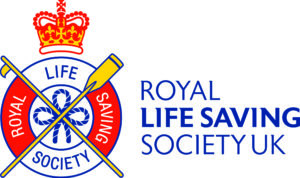Working near water is hazardous. If employees are unequipped with the knowledge, training, and equipment needed to respond effectively in an emergency—either involving themselves or a co-worker—then, sadly, it could mean loss of life.
 Here, the Royal Life Saving Society UK (RLSS UK) offers guidance and advice to companies in the water sector on steps to take to ensure employees stay safe.
Here, the Royal Life Saving Society UK (RLSS UK) offers guidance and advice to companies in the water sector on steps to take to ensure employees stay safe.
Working near water safety concerns
On average, one person every month drowns or is impacted by a near-drowning incident whilst at work (based on data from 2015-2022 from the Water Incident Research Hub).
Employers are responsible and legally required to ensure their workforce’s health and safety, including ensuring employees’ welfare at work and providing a safe working environment. It is essential for employees who work near water to receive water safety training, be provided with the appropriate equipment, be trained on using it effectively, and know suitable emergency procedures so that they can respond effectively in an emergency.
However, water safety professionals are concerned that too many companies fail to protect their staff from the risks; this includes Paul Magee, principal and chief instructor of PGM Training, who has more than ten years of experience delivering water safety training to public and private organisations.
“Many companies, particularly in the private sector, are unaware of their responsibilities. They are very good at providing training for manual handling and working at height, etc., but water safety is just not on their radar.”
“Ironically, there is more need for comprehensive water safety training than ever before”, says Chris Eades, owner of Bristol Maritime Academy, a leading provider of RLSS UK DEFRA training courses, who trained over a thousand people in water safety last year alone!
Eades also says: “The impact of climate change, increased flooding incidents, and the need for people to work in flooded conditions means high-quality water safety training is more critical than ever. If you’re questioning the need to train your team to be safe by water, the chances are that you should already be investing in workplace water safety training.”
Water safety training types
Anyone working near water should receive water safety training to keep themselves and their co-workers safe. Depending on the level of water safety knowledge employees need, a variety of water safety courses and water rescue training qualifications are available.
For example, the Royal Life Saving Society UK (RLSS UK) offers a wide range of water safety and rescue training courses, such as:
National Water Safety Management Programme (NWSMP) – 1-3 Day Course
The National Water Safety Management Programme offers three stackable water safety modules (Module 1 – Water Safety Awareness; Module 2 – Inland Waterways; and Module 3 – Coastal Waterways), enabling companies to pick the relevant modules that meet the water safety needs of their employees.
National Water Safety Management Programme DEFRA (NWSMP DEFRA) – 1-3 Day Course
The DEFRA-aligned National Water Safety Management Programme modules match the outcomes and objectives of the Department for Environment, Food and Rural Affairs (DEFRA) water safety training requirements. The DEFRA training courses teach candidates about their responsibilities when working near water and during times of flooding risks. NWSMP DEFRA offers three stackable DEFRA water rescue modules, so companies can pick the relevant modules that meet the water safety needs of their employees. The NWSMP DEFRA modules are Module 1 – Water & Flood Awareness, Module 1 with Annex H – Water & Flood Non-Rescue Operations, and Module 2 – Water & Flood First Responder.
Water Safety Experts since 1891
The Royal Life Saving Society UK (RLSS UK) has been at the forefront of water safety knowledge and training since 1891. It is committed to reducing the number of lives lost to drowning. Through its charity and commercial activities, RLSS UK has developed a comprehensive range of vocational water safety training courses and qualifications to prevent unnecessary loss of life through drownings and water-related accidents.
To learn more about workplace water safety training, download a free Water Safety at Work Guidance poster and book an RLSS UK course; visit www.rlss.org.uk/water-safety-training.



